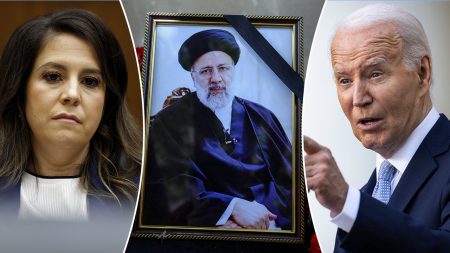An unnamed woman was denied a top-secret security clearance due to her close relation to an authoritarian dictator from an unnamed hostile country, as revealed in a publicly available document from the Defense Department’s Office of Hearings and Appeals. The administrative judge handling the case decided to deny the clearance based on the woman’s familial ties to a dangerous individual from a country that poses a threat to the United States. The woman, in her 30s and married to an American citizen, has worked for defense contractors for several years and is a US citizen who moved to the country in the 1990s.
Despite the woman’s impeccable record and loyalty to the United States, the judge emphasized that her close family connection to the dictator of “Country X” warranted the denial of a top-secret security clearance. The woman already holds a secret security clearance, with no previous concerns about her handling of sensitive information. The judge acknowledged the difficulty of the decision, noting that the woman is a model employee and a trusted individual, except for her familial ties to the dictator. The judge highlighted the potential conflict of interest and risks of foreign exploitation, coercion, and manipulation that could arise from her connection to the dictator.
The records suggest that the person in question could be from North Korea, given the mention of state-sponsored terrorism, cyberattacks, and dictatorship. Previous reports have identified individuals related to North Korean dictator Kim Jong Un who have immigrated to the US, facing threats of retaliation from their home country. The judge handling the case exercised caution in disclosing specific details about the applicant and her family to protect her identity. Despite praising the woman’s character, job performance, and loyalty to the US, the judge ultimately deemed her ineligible for a top-secret security clearance.
With over 1.2 million people holding top-secret security clearances as of October 2017, the denial of the woman’s clearance highlights the stringent criteria and security considerations involved in the clearance process. The judge’s decision to prioritize national security interests over the individual’s qualifications and character underscores the complex nature of security clearance evaluations. Military sociologist Dr. Marek Posard emphasized that the rejection was likely based on the perceived risks associated with the woman’s familial connection to a hostile foreign dictator, rather than any shortcomings on her part.
The judge’s careful consideration of the applicant’s qualifications, performance, and loyalty to the US reflects the balancing act involved in assessing security clearances. Despite the woman’s positive attributes and professional conduct, her familial ties to a dictator deemed her ineligible for a top-secret clearance. The decision underscores the broader implications of individuals’ social networks and the potential risks they may pose to national security. Ultimately, the rejection of the woman’s clearance application was based on the level of risk the US is willing to accept in granting access to sensitive information and underscores the need to anticipate and mitigate potential threats in the security clearance process.















